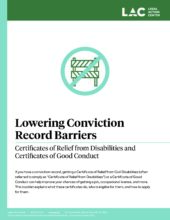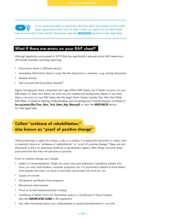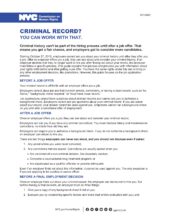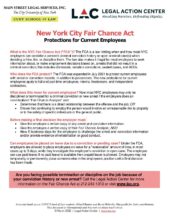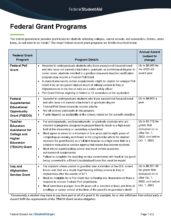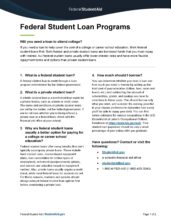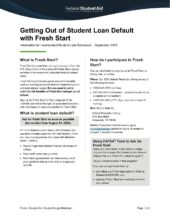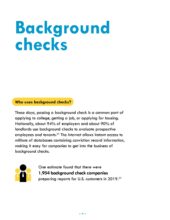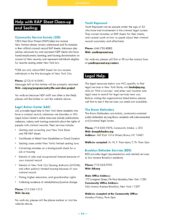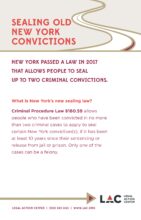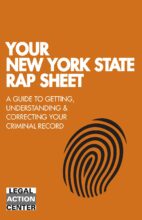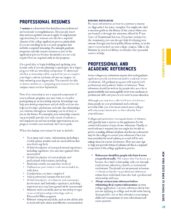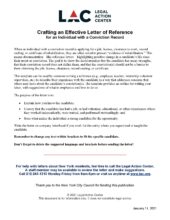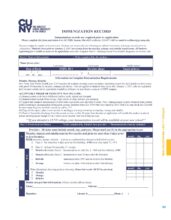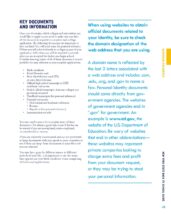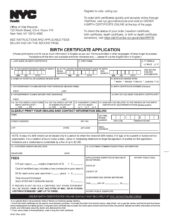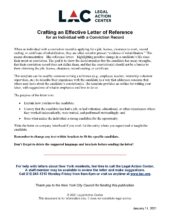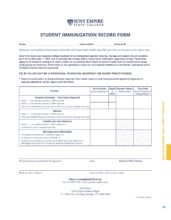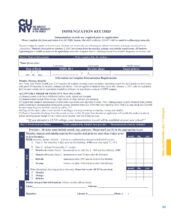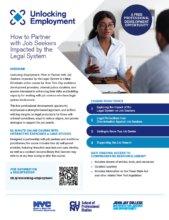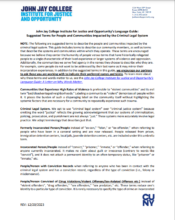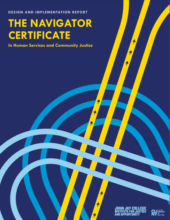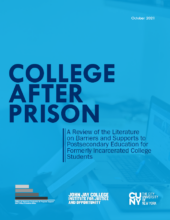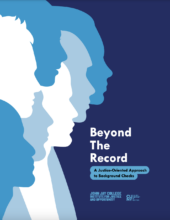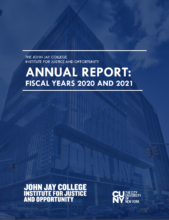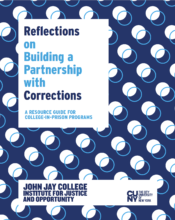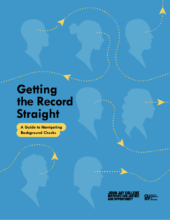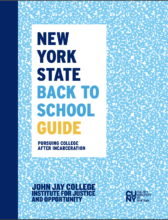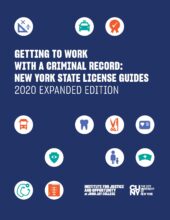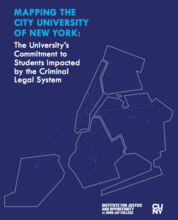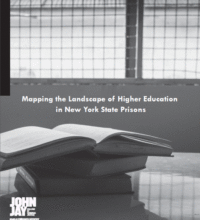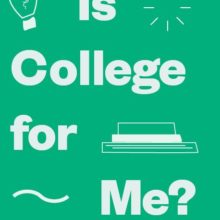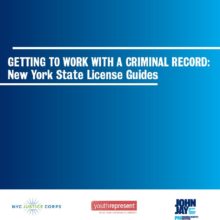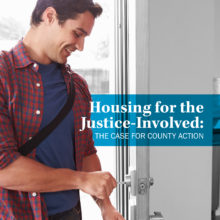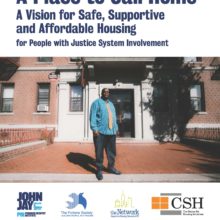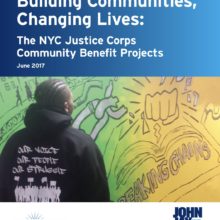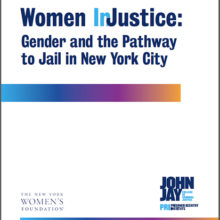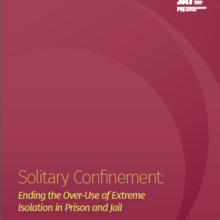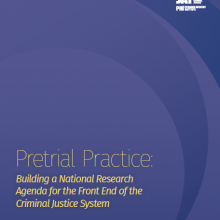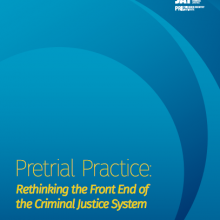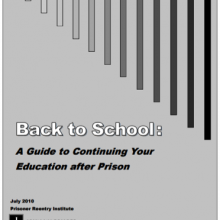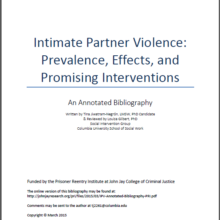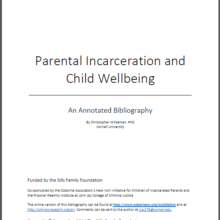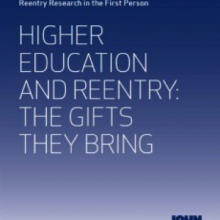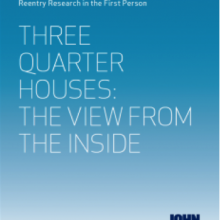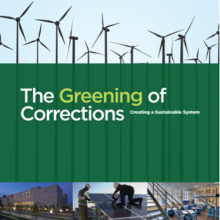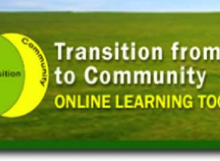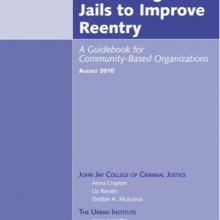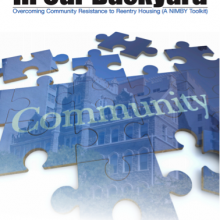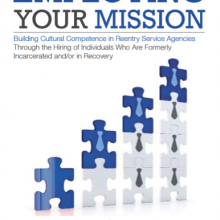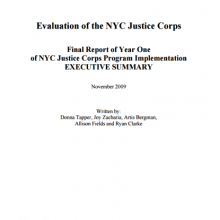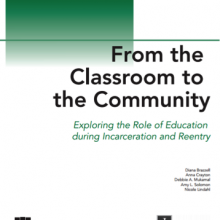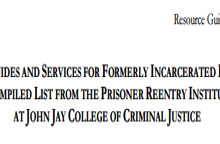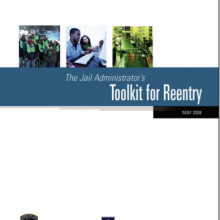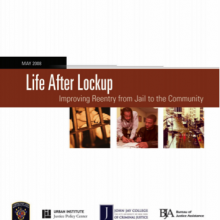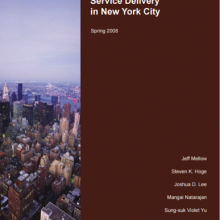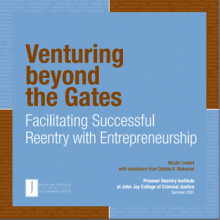Resources
The John Jay College Institute for Justice and Opportunity produces resources on a range of topics connected to its work and criminal legal system reform. Our resources are intended for a number of audiences, including but not limited to: people with conviction histories, community-based organizations that support people with conviction histories, correctional staff, college and university staff supporting students with conviction records, and employers.
Are you interested in receiving a hard, physical copy of one or more of our resources? We have hard copies available for a select number of our resources. Complete a Publication(s) Request Form for a free copy.
All Resources
Unlocking Employment: How to Partner with Job Seekers Impacted by the Legal System
Unlocking Employment: How to Partner with Job Seekers Impacted by the Criminal Legal System is a free 90-minute, online course designed to enhance skills and build capacity for working with job seekers in NYC who have legal-system involvement.
John Jay College Institute for Justice and Opportunity’s Language Guide
The John Jay College Institute for Justice and Opportunity’s Language Guide includes suggested terms to describe people and communities impacted by the criminal legal system, as well as a letter on why words matter to us and the terms were suggested.
Design and Implementation Report: The Navigator Certificate in Human Services and Community Justice
The report features essential elements of program design, highlights the journeys of Navigator students, and celebrates alumni perspectives.
College After Prison: A Review of the Literature on Barriers and Supports to Postsecondary Education for Formerly Incarcerated College Students
The white paper was co-authored by Vernisa M. Donaldson and Christopher Viera of the City University of New York (CUNY) Office of Research, Evaluation, and Program Support (REPS) as part of their contracted evaluation of College Initiative. The white paper synthesizes existing literature around higher education for formerly incarcerated individuals and describes the need for more work in this area.
Beyond the Record: A Justice-Oriented Approach to Background Checks
The guide is designed to help employers, educators, education and employment program operators, licensing bodies, and housing providers better understand the individual, institutional, and systemic barriers erected by background checks.
John Jay College Institute for Justice and Opportunity Annual Report
The first-ever annual report of the John Jay College Institute for Justice and Opportunity.
Reflections on Building a Partnership with Corrections: A Resource Guide for College-in-Prison Programs
This guide is part of an effort to provide college providers with the necessary tools for developing programs that are responsive to the unique environment of correctional facilities. While designed specifically for college programs that operate in New York State Department of Corrections and Community Supervision (DOCCS) facilities, this guide may also be useful for organizations and colleges outside of New York that wish to establish or enhance college-in-prison programs.
Getting the Record Straight: A Guide to Navigating Background Checks
This guide is designed to help people with conviction records navigate the individual, institutional, and systemic barriers erected by background checks. It is common for people to feel nervous or stigmatized when going through a background check. Preparing in advance can help the experience become less intimidating. This guide will help readers understand what appears on a conviction record, prepare for a background check, be ready to respond to questions, and more.
New York State Back to School Guide: Pursuing College After Incarceration
The New York State Back to School Guide is written for people who wish to pursue a college education in New York State after their release from incarceration. Its core purpose is to help readers develop a thoughtful and practical academic reentry plan to advance personal and professional goals. Additionally, this resource will be useful to college-in-prison providers, correctional education and counseling staff, community-based reentry organizations, and case managers seeking to support the educational goals of the adult learners with whom they work.
Getting to Work with a Criminal Record: New York State License Guides (2020 Expanded Edition)
The New York State License Guides explain the process for obtaining licenses in 25, high-demand occupations and professions for people who have conviction records. These guides aim to dispel the myths and misinformation that may discourage people with convictions from pursuing employment and career pathways that are actually available to them. There is a common misconception that a conviction record makes licensing impossible; in fact, 86 percent of people with conviction records who applied for New York State occupational licensing in 2018 were approved.
Mapping the City University of New York
Mapping the City University of New York: The University’s Commitment to Students Impacted by the Criminal Legal System details the scope of CUNY’s policies and programs for students impacted by the criminal legal system and explores opportunities for CUNY to better support those students.
Mapping the Landscape of Higher Education in New York State Prisons
Mapping the Landscape of Higher Education in New York State Prisons is the first of its kind in examining both the history and scope of college-in-prison programs across the state. The report describes the existing programs and incorporates the perspectives of DOCCS officials, college administrators, and incarcerated students.
Is College For Me?
Is College For Me? is a a pocket-sized fold out designed in collaboration with the Center for Urban Pedagogy (CUP) that demystifies the process of enrolling in college. The colorful resource explains the various types of degrees, schools, and resources available to students. Is College For Me? also breaks down the steps students can take while in still in prison and after coming home.
Getting to Work with a Criminal Record: NYS License Guides
This series of License Guides serves to support justice-involved individuals and advocates navigating the licensing process for 10 occupations in New York State. Developed in partnership with Youth Represent, PRI's License Guides include a comprehensive and accessible overview of the licensing process for each occupation, as well as a glossary of key legal terms and information on additional resources.
Housing for the Justice-Involved: The Case for County Action
Finding safe and affordable housing is crucial to their successful reentry, but is all too often a major challenge for justice-involved individuals. By encouraging innovative budgeting, collaboration across agencies, and the development of cutting-edge social services, PRI and the National Association of Counties (NACo) are laying the foundations for effective county action on reentry housing.
A Place to Call Home
This report makes the case of providing dignified housing that meets the needs of those with criminal justice histories, and providing it as quickly as possible upon reentry.
Building Communities, Changing Lives: The NYC Justice Corps Community Benefits Projects
By taking the lead in all aspects of creating and completing their service projects, Corps members learn the hard and soft skills needed for their return to education or entry into training and the workforce.
Women InJustice: Gender and the Pathway to Jail in New York City (March 2017)
While New York City has embarked on a series of reforms to divert people from jails and prisons and provide community supervision and community rehabilitation, reforms have primarily focused on men.
Solitary Confinement: Ending the Over-Use of Extreme Isolation in Prison and Jail | A Report on a Colloquium to Further a National Consensus
With support from the Jacob and Valeria Langeloth Foundation, John Jay College of Criminal Justice convened a colloquium including 15 corrections agency heads along with attorneys, academics, and experts from the community of those seeking to reform the use of social isolation, often called "solitary confinement," in U.S. prisons and jails.
Pretrial Practice: Building a National Research Agenda for the Front End of the Criminal Justice System | A Report on the Roundtable on Pretrial Practice
The companion volume to Pretrial Practice: Rethinking the Front End of the Criminal Justice System documents the progress made by scholars at the second Roundtable on Pretrial Practice, held at John Jay College in October of 2015. At the second Roundtable, participants built on the ideas, discussions, and areas of consensus from the first convening by working to chart a national research agenda for the field of pretrial.
Pretrial Practice: Rethinking the Front End of the Criminal Justice System | A Report on the Roundtable on Pretrial Practice
This report documents the first Roundtable's far-ranging discussions about how to remake pretrial through early intervention, innovative policing strategies, risk-based pretrial decision-making, and evidence-based pretrial supervision, all grounded in an important conversation about the core values that underpin American justice: proportionality, parsimony, citizenship, and social justice.
Back to School: A Guide to Continuing Your Education after Prison
This reentry guide, funded and revised in 2010 by the U.S. Department of Education, is intended to assist people in state prison planning to pursue or continue their education after release.
Intimate Partner Violence: Prevalence, Effects, and Promising Interventions – An Annotated Bibliography
This annotated bibliography, produced for the Occasional Series on Research in Reentry, offers information on the current state of knowledge about the prevalence and effects of intimate partner violence (IPV), as well as existing/promising interventions that address IPV among women with a focus on justice-involved women.
Parental Incarceration and Child Wellbeing – An Annotated Bibliography
This annotated bibliography focuses on quantitative research on the consequences of paternal and maternal incarceration for children that (1) attempts to control for selection using standard statistical techniques, (2) uses broadly representative data, and (3) differentiates consequences of paternal incarceration from those of maternal incarceration. Although this bibliography focuses primarily on research in the United States, a small number of studies using data from European countries are also included.
Higher Education and Reentry: The Gifts They Bring
This Participatory Action Research study, conducted by Michelle Fine, Alexis Halkovic (CUNY Graduate Center) and a team of research assistants, explores the lived experiences of people with criminal justice histories as they attend and contemplate enrolling in college.
Three Quarter Houses: The View from the Inside
“Three Quarter Houses: The View from the Inside” is the first systematic and comprehensive study of Three Quarter Housing in New York City.
The Greening of Corrections: Creating a Sustainable System
Funded by the National Institute of Corrections, this publication provides correctional professionals with an understanding of how to 1) build or transform correctional agencies into self-sustaining facilities; 2) identify green job training programs and jobs for prisoners that provide quality employment opportunities; and 3) make prison industry products, jobs, and services more environmentally friendly.
Transition from Jail to Community: Online Learning Toolkit
The National Institute of Corrections and The Urban Institute developed the Transition from Jail to Community (TJC) Implementation Toolkit, a web-based learning resource designed to guide jurisdictions through implementation of the TJC model, in whole or in part.
Partnering with Jails to Improve Reentry: A Guidebook for Community-Based Organizations
In partnership with The Urban Institute, PRI developed this guide for community-based organizations about establishing and sustaining meaningful and effective partnerships with their local jails.
In Our Backyard: Overcoming Community Resistance to Reentry Housing (A NIMBY Toolkit)
“Not in My Back Yard” – commonly referred to as NIMBY – resistance can result in significant program delays or even complete shutdowns. The NIMBY Toolkit focuses on helping organizations address a very specific issue when developing the capacity to provide housing to formerly incarcerated people and provides a statement of possibility for others who are seeking to house needy and feared populations.
Employing Your Mission: Building Cultural Competence in Reentry Service Agencies through the Hiring of Individuals Who Are Formerly Incarcerated and/or in Recovery
Funded by the United States Department of Justice and developed in collaboration with The Fortune Society, this toolkit addresses several interrelated issues regarding the successful reentry into society of formerly incarcerated men and women.
Evaluation of the NYC Justice Corps: Final Report of Year One Implementation
The report offers a comprehensive account of the program’s first 12 months from initial start-up phase through the first nine months of its launch, identifying the challenges it faced, which informed refinements to the model and operational policies for the second program year.
From the Classroom to the Community: Exploring the Role of Education during Incarceration and Reentry
In partnership with The Urban Institute, PRI sponsored a national roundtable on education and reentry in Spring 2008.
National Directory of Reentry Resource Guides
This directory provides links and contact information for reentry resource guides nationally and by state.
The Jail Administrator’s Toolkit for Reentry
As a companion to Life after Lockup, this handbook serves a practical resource for jail administrators and local correctional staff. It covers such issues as coordinating community stakeholders, identifying community resources, and measuring success on a local level.
Life after Lockup: Improving Reentry from Jail to the Community
This report, funded by the U.S. Department of Justice’s Bureau of Justice Assistance, is the first national resource focusing on the transition from jail to the community, a process that confronts more than nine million people each year.
Mapping the Innovation in Correctional Health Care Service Delivery in New York City
This monograph, funded by the Robert Wood Johnson Foundation, profiles the patterns of the formerly incarcerated returning to New York City, with particular focus on New York City’s adoption of a community-based public health model for correctional health care.
Venturing beyond the Gates: Facilitating Successful Reentry with Entrepreneurship
Venturing beyond the Gates: Facilitating Successful Reentry with Entrepreneurship includes overviews of the fields of criminal justice, reentry, entrepreneurship, and microenterprise; opportunities represented by bridging these fields; funding opportunities; and profiles of microenterprise programs working with currently and formerly incarcerated individuals.

